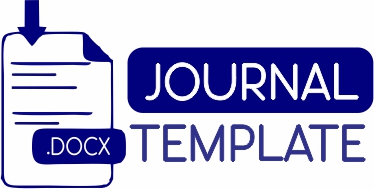BEBAN KOGNITIF INTRINSIC DALAM PEMBELAJARAN MATERI EKSISTENSI BILANGAN IRRASIONAL
Abstract
Keywords
References
Lampiran Permendikbud no 103 tahun 2014, (2014).
Ahmed, E., El Khoribi, R. A., Darwish, G., Muzy, A., & Bernot, G. (2020). Modeling of the development of the fetus cognitive map from the sensorimotor system. Egyptian Informatics Journal, 21(4), 191–199. https://doi.org/10.1016/j.eij.2020.01.002
Choppin, J. (2011). The role of local theories: Teacher knowledge and its impact on engaging students with challenging tasks. Mathematics Education Research Journal, 23(1), 5–25. https://doi.org/10.1007/s13394-011-0001-8
Costley, J., & Lange, C. (2017). The effects of lecture diversity on germane load. International Review of Research in Open and Distance Learning, 18(2), 27–46. https://doi.org/10.19173/irrodl.v18i2.2860
Creswell, J. W. (2009). Research Design: Pendekatan Kualitatif, Kuantitatif, dan Mixed, edisi-3. Terjemahan Achmad Fawai. Pustaka Pelajar.
de Jong, T. (2010). Cognitive Load Theory, Educational research, and instructional design: some food for thought. Instructional Science, 38(2), 105–134. https://doi.org/10.1007/s11251-009-9110-0
Friedman, N., Fekete, T., Gal, K., & Shriki, O. (2019). EEG-based prediction of cognitive load in intelligence tests. Frontiers in Human Neuroscience, 13(June). https://doi.org/10.3389/fnhum.2019.00191
Ginns, P., & Leppink, J. (2019). Special Issue on Cognitive Load Theory: Editorial. Educational Psychology Review, 31(2), 255–259. https://doi.org/10.1007/s10648-019-09474-4
Huang, Y. H. (2018). Influence of instructional design to manage intrinsic cognitive load on learning effectiveness. Eurasia Journal of Mathematics, Science and Technology Education, 14(6), 2653–2668. https://doi.org/10.29333/ejmste/90264
Kalyuga, S. (2011). Informing: A cognitive load perspective. Informing Science: The International Journal of an Emerging Transdiscipline, 14(1), 33–45. https://doi.org/10.28945/1349
Leppink, J. (2017). Cognitive load theory: Practical implications and an important challenge. Journal of Taibah University Medical Sciences, 12(5), 385–391. https://doi.org/10.1016/j.jtumed.2017.05.003
Lin, J. J. H., & Lin, S. S. J. (2014). Cognitive Load for Configuration Comprehension in Computer-Supported Geometry Problem Solving: an Eye Movement Perspective. International Journal of Science and Mathematics Education, 12(3), 605–627. https://doi.org/10.1007/s10763-013-9479-8
Murray, S. (2011). Declining participation in post-compulsory secondary school mathematics: Students’ views of and solutions to the problem. Research in Mathematics Education, 13(3), 269–285. https://doi.org/10.1080/14794802.2011.624731
Plass, J. L., Moreno, R., & Brünken, R. (2010). COGNITIVE LOAD THEORY. Cambridge University Press.
Skulmowski, A., & Rey, G. D. (2017). Measuring cognitive load in embodied learning settings. Frontiers in Psychology, 8(AUG), 1–6. https://doi.org/10.3389/fpsyg.2017.01191
Subanji. (2015). TEORI KESALAHAN KONSTRUKSI KONSEP DAN PEMECAHAN MASALAH MATEMATIKA. Universitas Negeri Malang.
Sweller, J. (2016). Working Memory, Long-term Memory, and Instructional Design. Journal of Applied Research in Memory and Cognition, 5(4), 360–367. https://doi.org/https://doi.org/10.1016/j.jarmac.2015.12.002
Sweller, J., Ayres, P., & Kalyuga, S. (2011). COGNITIVE LOAD THEORY (Vol. 82, Issue 1). Cambridge University Press. http://www.springer.com/series/8640
Sweller, J., van Merriënboer, J. J. G., & Paas, F. (2019). Cognitive Architecture and Instructional Design: 20 Years Later. Educational Psychology Review, 31(2), 261–292. https://doi.org/10.1007/s10648-019-09465-5
Tachie, S. A. (2019). Meta-cognitive skills and strategies application: How this helps learners in mathematics problem-solving. Eurasia Journal of Mathematics, Science and Technology Education, 15(5). https://doi.org/10.29333/ejmste/105364
Wawan, Ningsih, E. F., Widodo, S. A., Leonard, Sary, R. M., & Retnowati, E. (2019). The Cognitive Load of Learners in the Learning Process of the Rotating Object Volume. Journal of Physics: Conference Series, 1315(1). https://doi.org/10.1088/1742-6596/1315/1/012046
Yohanes, B. (2022). BEBAN KOGNITIF MAHASISWA DALAM PEMBELAJARAN PEMBUKTIAN TIDAK ADA BILANGAN RASIONAL r SEHINGGA. Vol. 2 No. 1 (2022): SEMNAS KNMIPA II : STEAM (SOCIETY TECHNOLOGY, ENGINEERING, ART AND MATHEMATICS), 37–46. https://ejournal.unibabwi.ac.id/index.php/knmipa/article/view/1720
Yohanes, B., & Lusbiantoro, R. (2019). Cognitive Load Theory: Interactivity Elements in Mathematics Learning. INSPIRAMATIKA: Jurnal Inovasi Pendidikan Dan Pembelajaran Matematika, 5(1), 1–8. http://e-jurnal.unisda.ac.id/index.php/Inspiramatika/article/view/1477
Yohanes, B., Subanji, & Sisworo. (2016). Students’ Cognitive Load in Geometry Learning. Jurnal Pendidikan: Teori, Penelitian Dan Pengembangan, 1(2), 187–195.
Yohanes, B., & Yusuf, F. I. (2021a). Intrinsic Cognitive Load in Online Learning Model of School Mathematics 1 in Covid-19 Pandemic Period. JIPM (Jurnal Ilmiah Pendidikan Matematika), 9(2), 59. https://doi.org/10.25273/jipm.v9i2.7292
Yohanes, B., & Yusuf, F. I. (2021b). TEORI BEBAN KOGNITIF: PETA KOGNITIF DALAM PEMECAHAN MASALAH PADA MATEMATIKA SEKOLAH. AKSIOMA: Jurnal Program Studi Pendidikan Matematika, 10(4), 2215–2224. https://doi.org/https://doi.org/10.24127/ajpm.v10i4.4033
DOI: 10.24269/ed.v6i1.1177
Refbacks
- There are currently no refbacks.




.png)

.png)
.png)
